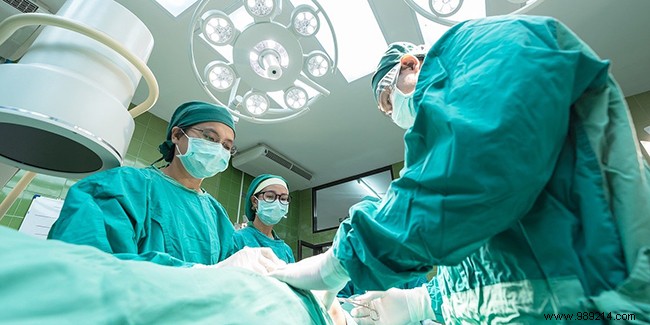
Medicine is not a science without risks. Accidents due to medical acts, and with consequences that can be more or less serious for the patients, are always possible. Depending on the damage suffered, the victims of such accidents have at their disposal the means to have their rights recognized and, in certain cases, to be compensated.
A person who is the victim of an accident due to a medical act has the possibility of asserting his rights to recognition of his prejudice under certain conditions.
To do this, the medical accident suffered must be considered serious, i.e. it must cause damage assessed in relation to certain thresholds. The latter must, in fact, either result in a permanent impairment of the patient's physical or mental integrity (AIPP) at a rate greater than 24%, or lead to the temporary cessation of his professional activities (ATAP) for at least least 6 consecutive months (or 6 non-consecutive months over a period of 12 months), or either cause temporary discomfort constituting a temporary functional deficit (TFD) greater than or equal to a rate of 50% for at least 6 consecutive months ( or 6 non-consecutive months within a 12 month period).
A person may also, exceptionally, be recognized as a victim of a medical accident if the seriousness of the damage renders him permanently unfit to carry out his professional activity or if his living conditions are seriously disrupted.
It is the same for people who suffer from a condition, called "iatrogenic", due to a drug or treatment prescribed to them by a health professional, or from a nosocomial infection, an infection contracted by a patient at least 48 hours after the beginning of his hospitalization.
Depending on the seriousness of the damage suffered due to an accident due to a medical act, several types of steps are possible to have your rights recognized and possibly to be compensated.
A person who has been the victim of an accident due to a medical act and who suffers damage whose severity threshold is less than 24% can initiate a so-called “conciliation” process. To do this, it must seize the Commission for Conciliation and Compensation for Medical Accidents (CCI) within 10 years from what is called the "consolidation" of the damage suffered, i.e. say the moment when the lesion is no longer likely to evolve in the short term and can be considered as having a permanent character.
The CCI which depends on his domicile must be entered via a compensation claim form (Cerfa n° 12245*03) by registered letter with acknowledgment of receipt. In addition to the contact details of the applicant, this form asks to mention in particular those of the health professional in question, the medical act which caused the harm and the details of its consequences for the patient.
The CCI informs the persons involved and may, depending on the case, forward the request for conciliation to the Commission for relations with users of the hospital or clinic concerned, a body responsible for "ensuring respect for the rights users and facilitate their procedures so that they can express their difficulties “, as indicated by the Ministry of Solidarity and Health.
The ICC can also decide to study the request for conciliation itself or delegate an independent mediator.
The amicable settlement process, which must also be undertaken with the ICC, is intended for people who have suffered damage due to a medical act but whose severity threshold is greater than 24%. In this case, the CCI orders a medical expert report.
Whether it is a matter of conciliation or amicable settlement, if the compensation of the person who has suffered damage caused by a medical act is decided by the CCI, the latter is carried out either by the insurance of the health professional involved, or by the National Office for Compensation for Medical Accidents, Iatrogenic Affections and Nosocomial Infections (ONIAM), a public establishment placed under the supervision of the Ministry of Health.
If the responsibility of the health professional at the origin of the incriminated medical act is recognized and established by the CCI, his insurer is required to make an offer of compensation to the victim within 4 months. If this offer is accepted by the victim, the insurer has one month after this acceptance to pay the compensation provided. Beyond this period, the insurer must pay interest on the amounts to be paid corresponding to 2 times the legal rate per day of delay.
If the victim does not accept the offer of compensation, they can go to the competent court depending on the damage suffered and the healthcare professional or establishment concerned.
In the event that the ICC does not recognize the responsibility of the health professional involved and if the damage suffered as a result of a medical act exceeds the severity threshold of 24%, the victim is compensated by ONIAM according to procedures which depend on the type of accident due to a medical procedure. “The victim can thus be compensated quickly thanks to an amicable process for processing their case, knowing that they can always, if they prefer, go to court “, as the organization indicates.